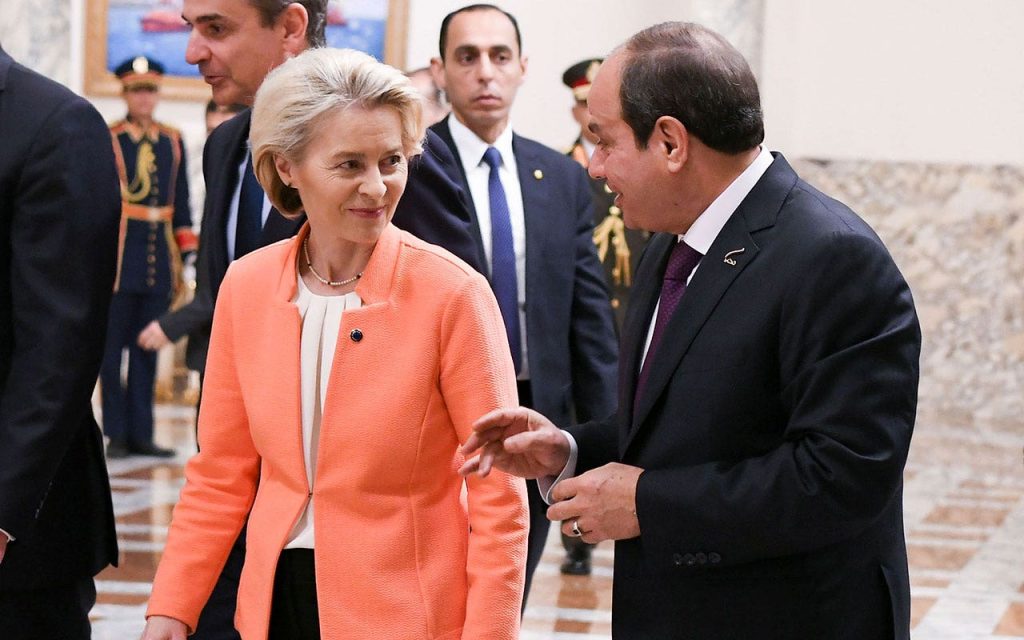The European Union has announced plans to fast-track up to $1.1 billion in financial aid to Egypt, bypassing parliamentary oversight and other safeguards. This move aims to inject much-needed funds into the Egyptian economy, which has been impacted by government austerity, the COVID-19 pandemic, conflicts in the region, and economic pressure. The EU’s assistance to Egypt is part of a larger $8 billion package of grants and favorable loans, with the majority of funds going directly to Egypt’s Central Bank. The urgency of the aid is attributed to Egypt’s rapidly deteriorating economic and fiscal situation, which has been exacerbated by events such as Russia’s war on Ukraine, conflicts in Gaza and Sudan, and Houthi attacks in the Red Sea.
European Commission President Ursula von der Leyen emphasized the need to address Egypt’s economic challenges, including a significant exposure to the effects of regional conflicts. The urgent funding procedure being used by the EU allows for a significant contribution to Egypt by the end of 2024, utilizing Article 213 of the EU treaties to bypass parliamentary oversight. While the EU normally requires parliamentary approval for aid distributions, this process removes the need for such checks, as well as an impact assessment on the effects of the assistance. The remaining $4.3 billion of assistance will require the involvement of the new EU Parliament, ensuring that Egypt implements comprehensive reforms in exchange for continued financial support.
The EU’s aid package to Egypt also includes an investment plan and loans related to migration management, reflecting the broader focus on addressing migration pressures in the region. Migration is a key driver of the EU-Egypt deal, as mainstream parties seek to prevent migrant flows that could fuel far-right campaigns. Similar agreements have been made with other countries in the region, such as Mauritania and Tunisia, to enhance border security and stem migration towards Europe. While Egypt’s coast is not a significant launching point for migrants crossing the Mediterranean, the country faces migratory pressures from neighboring conflicts and events, such as the Israel-Hamas war.
Despite the urgent need for financial assistance, the EU has highlighted the importance of respecting human rights and effective democratic mechanisms in its relations with Egypt. Amnesty International has called for the EU to prioritize human rights in its interactions with Egypt, acknowledging that significant challenges remain in the country. The EU’s executive branch recognizes Egypt’s efforts towards human rights reforms in recent years but maintains that more progress is needed. Egypt has taken steps to stabilize its economy, including floating its currency and increasing its bailout loan from the International Monetary Fund, while also securing investments from Gulf Arab states.
The EU’s aid package to Egypt reflects a broader strategy to address economic challenges, regional conflicts, and migration pressures in the North African country. While the fast-track funding aims to provide immediate relief to Egypt’s struggling economy, the EU is also emphasizing the importance of human rights and democratic principles in its partnership with the country. By engaging with Egypt on issues such as migration management, the EU hopes to strengthen cooperation and address shared concerns in the region. The aid package signifies a commitment to supporting Egypt’s economic stability and promoting reforms that will benefit both parties in the long term.


